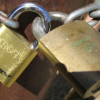Researchers demonstrate brilliant quantum hack
Two researchers have shown how they can eavesdrop unnoticed on a provably secure quantum key distribution. To do so, Qin Liu and Sebastien Sauge did not of course change the laws of quantum physics. Instead, in archetypal hacker fashion, they successfully attacked the weakest point of a real world, and thus imperfect, implementation of a quantum key distribution system.
Quantum key distribution (QKD) is aimed at permitting absolute security in exchanging secret keys. Simplifying somewhat, it is based on sending two quantum mechanically entangled photons, which can be measured as having a value of 0 or 1, to Alice and Bob. Until either Alice or Bob actually determines the state of one of the photon, that state remains indeterminate. The only certainty is that if Alice at some point measures a 1, Bob will also subsequently measure a 1. If a malicious Eve intercepts the photons, she can read the value, but having done so is unable, according to Heisenberg's uncertainty principle, to generate another photon with the same properties, thus allowing Bob to discover the subterfuge.









































































